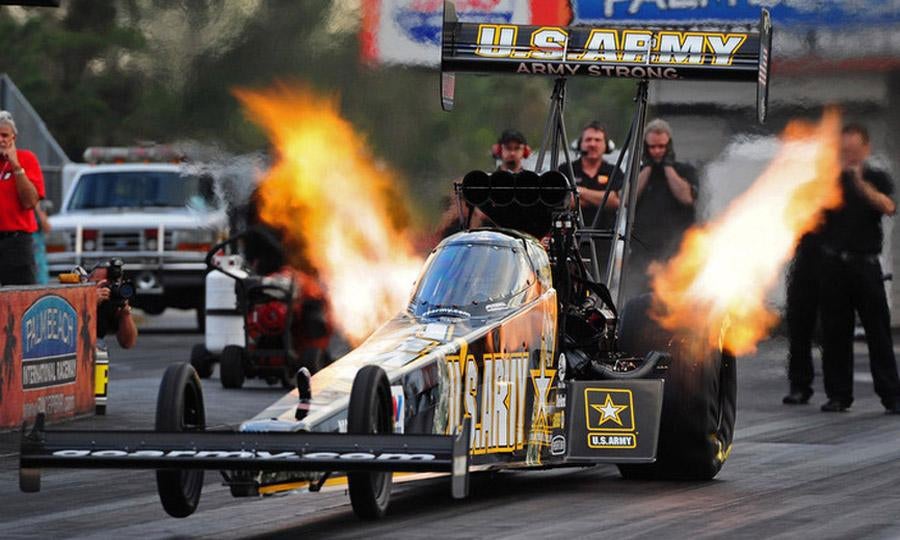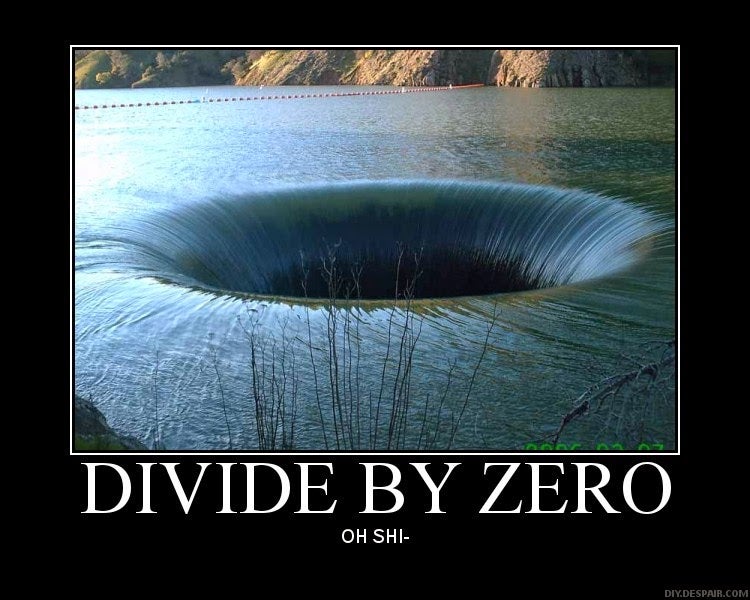 "Jdrentarol" (jdrentarol)
"Jdrentarol" (jdrentarol)
01/28/2016 at 08:37 ē Filed to: None
 0
0
 50
50
 "Jdrentarol" (jdrentarol)
"Jdrentarol" (jdrentarol)
01/28/2016 at 08:37 ē Filed to: None |  0 0
|  50 50 |
What car has the most hp per liter?
I bet everyone will get it wrong.
Update:
Itís the Tesla Model S P90D, with 762 hp and 0 liters.
Infinite hp per liter
 Brian Silvestro
> Jdrentarol
Brian Silvestro
> Jdrentarol
01/28/2016 at 08:40 |
|
is it still the C/GLA45?
 Jdrentarol
> Brian Silvestro
Jdrentarol
> Brian Silvestro
01/28/2016 at 08:42 |
|
Holy crap no you are far off
 Ash78, voting early and often
> Jdrentarol
Ash78, voting early and often
> Jdrentarol
01/28/2016 at 08:45 |
|
I assume turbos count? Because among NA engines, I thought the production car title was still held by the S2000 engine from the early 2000s. 110hp/L, something like that.
IMHO, forced induction make the stat a lot less meaningful. But still interested in hearing the final answer...
 Panther Brown Tdi Volvo Shooting Brake Manual Miata RWD Wagon Stole HondaBro's Accord.
> Jdrentarol
Panther Brown Tdi Volvo Shooting Brake Manual Miata RWD Wagon Stole HondaBro's Accord.
> Jdrentarol
01/28/2016 at 08:46 |
|
S2000?
 Jdrentarol
> Ash78, voting early and often
Jdrentarol
> Ash78, voting early and often
01/28/2016 at 08:49 |
|
You really want to know?
 Jdrentarol
> Panther Brown Tdi Volvo Shooting Brake Manual Miata RWD Wagon Stole HondaBro's Accord.
Jdrentarol
> Panther Brown Tdi Volvo Shooting Brake Manual Miata RWD Wagon Stole HondaBro's Accord.
01/28/2016 at 08:49 |
|
Nope
 Party-vi
> Jdrentarol
Party-vi
> Jdrentarol
01/28/2016 at 08:52 |
|
Ferrari Berlinetta Boxer
 If only EssExTee could be so grossly incandescent
> Jdrentarol
If only EssExTee could be so grossly incandescent
> Jdrentarol
01/28/2016 at 08:53 |
|

8 or so liters making 8-10,000hp = 1000-1250hp/l
 AkursedX
> Jdrentarol
AkursedX
> Jdrentarol
01/28/2016 at 08:53 |
|
FD Rx-7's were around 212hp/l
 Jdrentarol
> Party-vi
Jdrentarol
> Party-vi
01/28/2016 at 08:55 |
|
Noooope
 Jdrentarol
> AkursedX
Jdrentarol
> AkursedX
01/28/2016 at 08:55 |
|
Nopiddy nope nope
 Jdrentarol
> If only EssExTee could be so grossly incandescent
Jdrentarol
> If only EssExTee could be so grossly incandescent
01/28/2016 at 08:55 |
|
Nope
 Panther Brown Tdi Volvo Shooting Brake Manual Miata RWD Wagon Stole HondaBro's Accord.
> Jdrentarol
Panther Brown Tdi Volvo Shooting Brake Manual Miata RWD Wagon Stole HondaBro's Accord.
> Jdrentarol
01/28/2016 at 08:57 |
|
Evo 10?
 Party-vi
> Jdrentarol
Party-vi
> Jdrentarol
01/28/2016 at 08:58 |
|
Horse shit the Ferrari Berlinetta Boxer had a 1.1L flat-12 to meet Italyís stringent displacement tax laws and generated around 1,345bhp.
 Jdrentarol
> Party-vi
Jdrentarol
> Party-vi
01/28/2016 at 09:00 |
|
Nope
 TractorPillow
> Party-vi
TractorPillow
> Party-vi
01/28/2016 at 09:01 |
|
It's true though!!
 petebmwm
> Jdrentarol
petebmwm
> Jdrentarol
01/28/2016 at 09:02 |
|
something with a turbine...
 Jewish Stig
> Jdrentarol
Jewish Stig
> Jdrentarol
01/28/2016 at 09:11 |
|
I remember reading about a 0.9CC engine (or was a 1Liter) tuned by NISMO that produced around 300BHP
 AthomSfere
> Jdrentarol
AthomSfere
> Jdrentarol
01/28/2016 at 09:12 |
|
Any quantifiers?
Petrol, diesel, NA? Or just freaking whatever motor ever in anything?
 Alfalfa
> Jdrentarol
Alfalfa
> Jdrentarol
01/28/2016 at 09:12 |
|
I thought it was the Koenigsegg one:1.
 Jdrentarol
> Jewish Stig
Jdrentarol
> Jewish Stig
01/28/2016 at 09:13 |
|
Nope
 BorkBorkBjork
> Jdrentarol
BorkBorkBjork
> Jdrentarol
01/28/2016 at 09:13 |
|
Tesla
 Jdrentarol
> Alfalfa
Jdrentarol
> Alfalfa
01/28/2016 at 09:14 |
|
Nope
 Jdrentarol
> BorkBorkBjork
Jdrentarol
> BorkBorkBjork
01/28/2016 at 09:17 |
|
You got it! Right after I updated it
 Aaron M - MasoFiST
> Jdrentarol
Aaron M - MasoFiST
> Jdrentarol
01/28/2016 at 09:17 |
|
Technically the Tesla is tied with the Leaf and i3.
 Jdrentarol
> Aaron M - MasoFiST
Jdrentarol
> Aaron M - MasoFiST
01/28/2016 at 09:19 |
|
Nope, because the tesla has more hp. So the Teslaís infinite hp per liter is more than than any other electric carís.

 PotbellyJoe and 42 others
> Jdrentarol
PotbellyJoe and 42 others
> Jdrentarol
01/28/2016 at 09:20 |
|
Too vague of a question.
Are we talking all-time production?
Mitsubishi Lancer Evolution X FQ-440 MR
440 HP out of 1998cc.
Are we talking current cars?
McLaren P1
727-hp from 3.8L is around 191/L
If we go to race cars itís tough to call because they donít always publish accurate power numbers. Especially in the Rally cars.
 Jdrentarol
> PotbellyJoe and 42 others
Jdrentarol
> PotbellyJoe and 42 others
01/28/2016 at 09:22 |
|
Itís all time production, and itís the Model S P90D
 Aaron M - MasoFiST
> Jdrentarol
Aaron M - MasoFiST
> Jdrentarol
01/28/2016 at 09:25 |
|
When you divide by zero, the result is infinity. There is no numerical difference between any of these infinities, all of them are equal.
 themanwithsauce - has as many vehicles as job titles
> Jdrentarol
themanwithsauce - has as many vehicles as job titles
> Jdrentarol
01/28/2016 at 09:26 |
|
I heard the tesla motor is about the size of a watermelon, so that displaces about 4-5 liters of water. Ergo, tesla is not the best.
 Jdrentarol
> Aaron M - MasoFiST
Jdrentarol
> Aaron M - MasoFiST
01/28/2016 at 09:26 |
|
But still, the Tesla Model S P90D has 762 HP and 0 liters, and the Nissan Leaf has less. So... model S wins?
 Jdrentarol
> themanwithsauce - has as many vehicles as job titles
Jdrentarol
> themanwithsauce - has as many vehicles as job titles
01/28/2016 at 09:27 |
|
Liters refer to how many liters of air can be crammed into each cylinder at a time. Not water.
 Ash78, voting early and often
> Jdrentarol
Ash78, voting early and often
> Jdrentarol
01/28/2016 at 09:29 |
|
I see the final answer was posted. May God help us all.

 PotbellyJoe and 42 others
> Jdrentarol
PotbellyJoe and 42 others
> Jdrentarol
01/28/2016 at 09:30 |
|
Iím not playing a semantics game, but the motor in a Tesla is the size of a watermelon and though there are no cylinders, those coils add up to something. There is a ďDisplacement litre equivalentĒ just like the MPGe numbers.
 Aaron M - MasoFiST
> Jdrentarol
Aaron M - MasoFiST
> Jdrentarol
01/28/2016 at 09:31 |
|
That means the Model S has more hp. It does not mean it makes more hp/liter. If youíre going to go through a mathematical loophole, you should at least be consistent.
:-p
 themanwithsauce - has as many vehicles as job titles
> Jdrentarol
themanwithsauce - has as many vehicles as job titles
> Jdrentarol
01/28/2016 at 09:31 |
|
So then itís a wrong comparison as the tesla doesnít use the same method to make power.
Also, something divided by zero doesnít mean infinite, it means an incomprehensible outcome. This is not a function in calculus like ďas X approaches zeroĒ which is what gives you infinity as an answer since it cannot approach zero. You start with ďdisplacement is at zeroĒ. Which isnít allowed.
SCIENCED! AND MATHED!
*mic drop*
 Jdrentarol
> PotbellyJoe and 42 others
Jdrentarol
> PotbellyJoe and 42 others
01/28/2016 at 09:32 |
|
But I am talking about air liters.
 BorkBorkBjork
> Aaron M - MasoFiST
BorkBorkBjork
> Aaron M - MasoFiST
01/28/2016 at 09:33 |
|
One infinity can actually be larger than another.
 Eric @ opposite-lock.com
> Jdrentarol
Eric @ opposite-lock.com
> Jdrentarol
01/28/2016 at 09:34 |
|
I just had a divide by zero error. You canít divide by zero, dude.
Dividing by zero is not infinity.
 PotbellyJoe and 42 others
> Jdrentarol
PotbellyJoe and 42 others
> Jdrentarol
01/28/2016 at 09:35 |
|
Yeah, youíre not right because talking about hp per liter is implying there is an engine.
I get itís a riddle and thatís the catch, but letís be serious, that isnít a non-displacement engine. Itís just an alternate-displacement motor. Just like how it canít have MPG, since it doesnít run on a storage of G.
 Eric @ opposite-lock.com
> Jdrentarol
Eric @ opposite-lock.com
> Jdrentarol
01/28/2016 at 09:38 |
|
This question also reminds me:
100/L used to be something to be proud of. Now my compact beats that by a good margin. It isnít even a particularly unusual or special car.
 themanwithsauce - has as many vehicles as job titles
> Aaron M - MasoFiST
themanwithsauce - has as many vehicles as job titles
> Aaron M - MasoFiST
01/28/2016 at 09:38 |
|
Actually youíre still wrong. You cannot divide by zero. Infinity is the result of the limit as x approaches zero for 1/x, as x cannot ever BE zero. It will always be non-zero but get infintessimally smaller while the result of 1/x gros and grows and grows.
Division by zero is, at its core, impossible.
 Musabasjoo
> Aaron M - MasoFiST
Musabasjoo
> Aaron M - MasoFiST
01/28/2016 at 09:45 |
|
Liters per hp
If no liters, no comparision
Waste of time
 If only EssExTee could be so grossly incandescent
> Jdrentarol
If only EssExTee could be so grossly incandescent
> Jdrentarol
01/28/2016 at 09:46 |
|
Undefined =/= infinite
Electric cars do not make ANY hp/l because there are no liters.
 Aaron M - MasoFiST
> themanwithsauce - has as many vehicles as job titles
Aaron M - MasoFiST
> themanwithsauce - has as many vehicles as job titles
01/28/2016 at 09:52 |
|
Depends on your definition and how you choose to define your asymptotic result; technically it is a limit rather than an arithmetic result but for the OPís case thatís pedantry. Nonetheless, the limits are functionally equal, which is the more important conclusion.
EDIT: You can divide by zero in complex analysis, ďyou cannot divide by zeroĒ is not a factual statement so much as a high school math teacherís way of not trying to explain complex analysis to their students.
 Aaron M - MasoFiST
> BorkBorkBjork
Aaron M - MasoFiST
> BorkBorkBjork
01/28/2016 at 09:56 |
|
All of these infinities are unbounded limits; youíd need defined infinite sets to compare their sizes. So while not all infinities are the same size, these infinities effectively are.
 themanwithsauce - has as many vehicles as job titles
> Aaron M - MasoFiST
themanwithsauce - has as many vehicles as job titles
> Aaron M - MasoFiST
01/28/2016 at 10:07 |
|
Yes but these arent Riemann spheres or anything like that. This is the calculation of specific output. So for that equation, you canít divide by zero. This is the equivalent of those facebook chain questions which depend on people being terrible at order of operations or communicating poorly in general and the end result is meaningless anyways.
 Aaron M - MasoFiST
> themanwithsauce - has as many vehicles as job titles
Aaron M - MasoFiST
> themanwithsauce - has as many vehicles as job titles
01/28/2016 at 10:11 |
|
The result is absolutely meaningless, of course. But dealing with absolutes is what got us here in the first place, and Iím on a conference call and have nothing better to do.
 scoob
> Jdrentarol
scoob
> Jdrentarol
01/28/2016 at 10:14 |
|
Infinite HP per liter, but it has a finite number of HP and no liters?
wat
 Nibbles
> Jdrentarol
Nibbles
> Jdrentarol
01/28/2016 at 13:06 |
|
Actually your answer is wrong because you divided by zero.